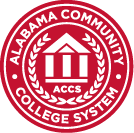Jefferson State Community College’s Veterinary Technology Program
From www.vettechcolleges.com Veterinary technicians are sometimes referred to as veterinary assistants and indeed their job often involves assisting veterinarians. Officially speaking, however, veterinary assistants do not require any specialized training whereas veterinary technicians must have a formal education in the field and pass either a state or national exam demonstrating competency. This can make distinguishing among available programs somewhat difficult.
The U.S. Bureau of Labor Statistics has found that the need for veterinary technicians is expected to increase at the rate of 30% by the year 2020, which is much faster than the average for all U.S. occupations (BLS, 2010). Now it an ideal time for anyone considering a career as a veterinary technician to explore educational opportunities.
It can be difficult for anyone looking to further their education to find the necessary time to do so. With the advent of the internet, many more people that may not have physical access to
training are able to pursue careers assisting veterinarians as veterinary technicians. The schools on this list offer online programs for veterinary assisting, both certification for veterinary
assistants and degrees for veterinary technicians, to students throughout the country.
Here are the top seven programs in the nation:
California State University East Bay
St. Petersburg College
Purdue University
Northern Virginia Community College
Jefferson State Community College
San Juan College
Cedar Valley College
In selecting the top online programs for veterinary assisting in the U.S., it was necessary to consider a few different factors, including accreditation, graduation rates, and overall accessibility of the program.
1. Accreditation: When evaluating any institution of higher learning, it is a good idea to have a grasp on the college’s accreditation status. For this list, we looked at those programs
that were accredited by nationally recognized organizations in the field of veterinary technology, namely the American Veterinary Medical Association (AVMA). In order to become accredited, institutions must apply, submit data about their program, and subject themselves to site visits from AVMA members.
While AVMA accreditation does not ensure any outcome for students, it is a way to ensure that a veterinary technology program has been thoroughly evaluated for its completeness and adherence to veterinary standards.
2. Graduation Rates: When an institution does not see to it that most of their initial applicants see the program through to completion, it is setting students up for failure. This is why we
have taken recent graduation rates into account when compiling this list.
3. Clinical Components: Online learning has made education possible for more people than ever before and can be a great contribution to the veterinary assisting community. However, no one can truly be prepare for work assisting a veterinarian without setting foot in a clinic, which is why every program on this list also has a hands-on experience component.



